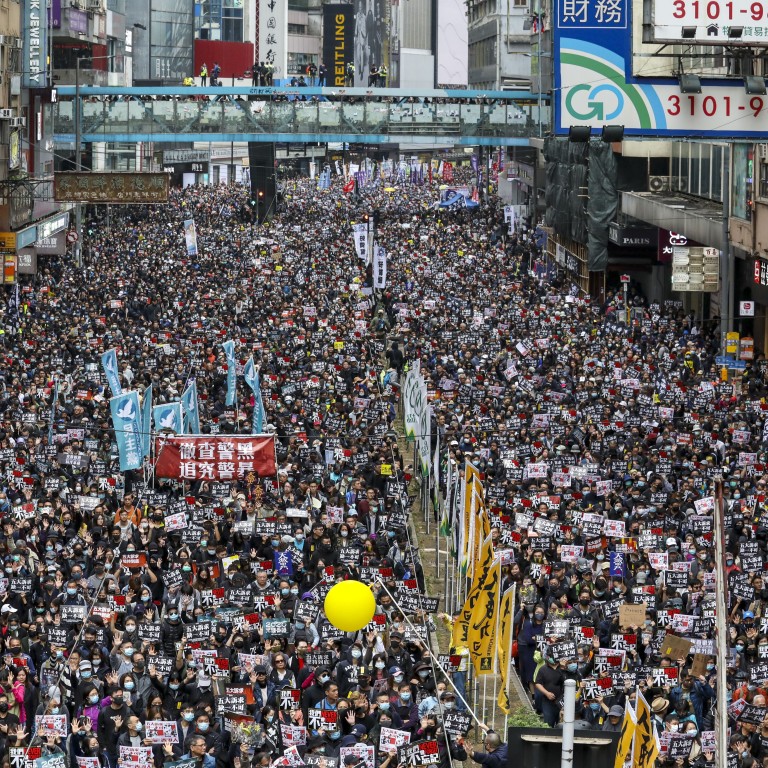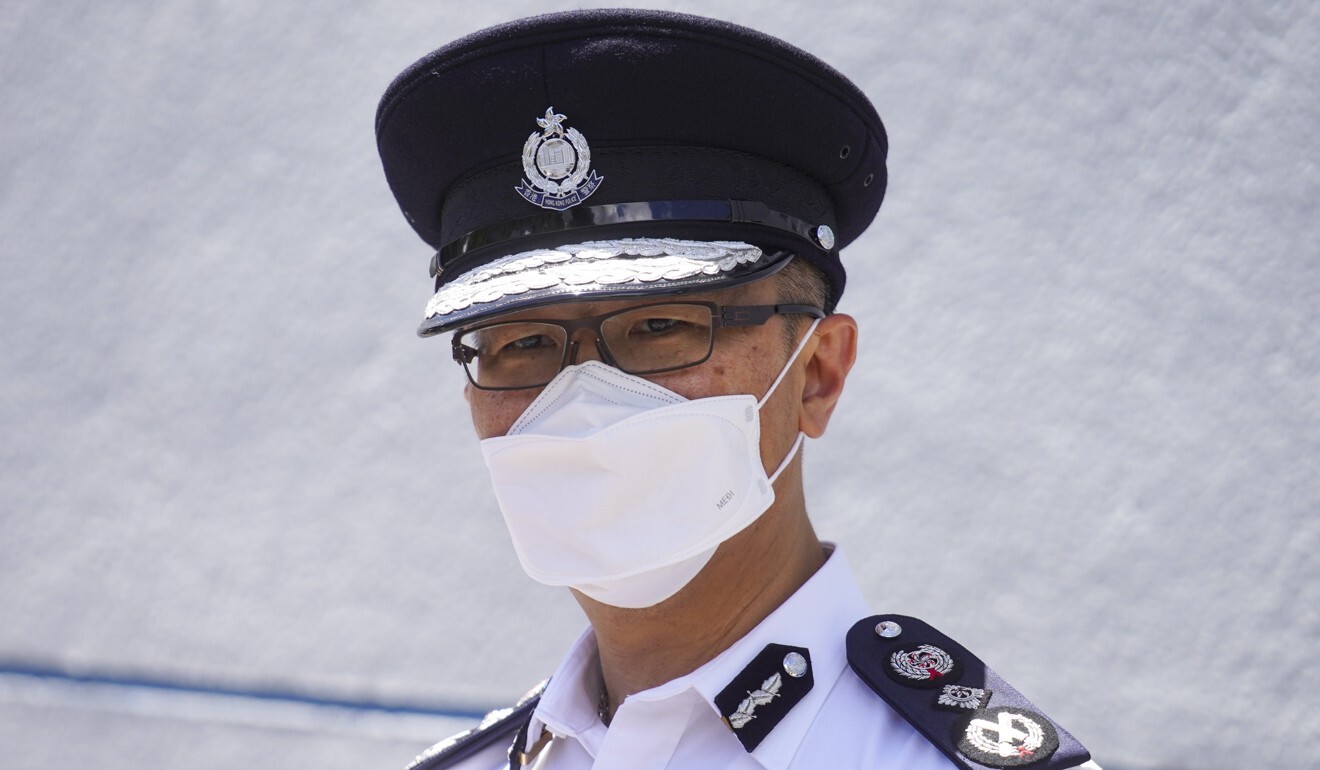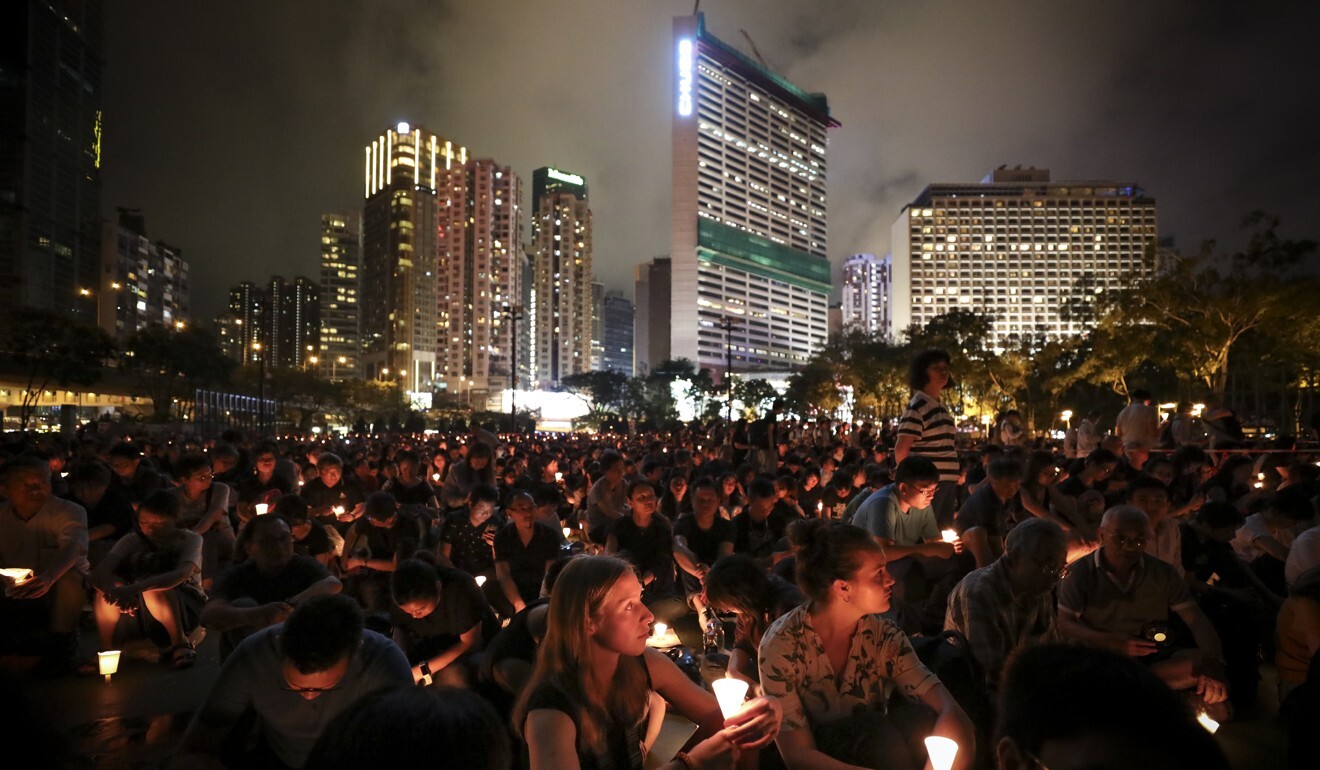
Organiser behind many of Hong Kong’s biggest protests to disband but police crackdown against group ‘won’t stop’
- Civil Human Rights Front, organiser of some of city’s biggest protests, endorses decision to disband at secretive meeting on Friday evening
- Impending crackdown on front reflects Beijing’s determination to crush organised pro-opposition groups it sees as threatening stability, source says
The umbrella group behind many of Hong Kong’s largest protests has decided to disband, the Post has learned.
But the dissolution of the Civil Human Rights Front will not stop police swooping on it, according to a source familiar with the central government’s thinking.
The front, which played a key role in the anti-government protests of 2019, has yet to make a public announcement on its decision, but member groups endorsed a resolution on disbanding at a meeting on Friday evening, an insider said. The group had declined earlier on Friday to disclose to the media details of the meeting, including participants, time and the venue.
The impending crackdown on the front reflected Beijing’s determination to crush organised pro-opposition groups that it saw as threatening the city’s stability, the first source said.

03:51
Hong Kong’s largest teachers’ union to disband after pressure from pro-establishment media
“Action against the front won’t stop regardless of its decision on Friday. Beijing is determined to get tough on organised pro-opposition groups which pose a potential risk to Hong Kong’s stability, such as the front,” the source said.
Earlier in the day, opposition-leaning activists and unions vowed to fight on for justice, labour rights, better housing and improved social policies ahead of the front’s expected move.
The front’s decision came just days after the PTU’s announcement to disband.
In an interview published by pro-Beijing newspaper Ta Kung Pao on Friday, police chief Raymond Siu Chak-yee said the front could have violated the security law as it hosted a series of unlawful assemblies in recent years. He warned that police had gathered evidence to take action against “unlawful groups” at any time.
At its height, the front had more than 40 member groups, including the Democratic, Labour and Civic parties. But most groups started quitting in March after reports emerged that police were investigating the front under the national security law.
Teachers’ union ‘chose to disband after private warnings from Beijing emissaries’
As of Friday, membership had dwindled to just 10 bodies, including the Social Workers’ General Union, League of Social Democrats and the Alliance in Support of Patriotic Democratic Movements of China, organiser of the city’s June 4 candlelight vigil marking the 1989 Tiananmen Square crackdown.
Cheung Chi-wai, external vice-president of the social workers’ group, said he hoped the situation involving the front and PTU did not mean trade unions were no longer tolerated by the authorities.
“I cannot comment on the front’s plans and it is regrettable the PTU had to disband, but I think as a union, it should not cause big problems as we are concerned about labour rights, social workers’ relationships with their employers, and social welfare policies,” he said.
Police have been investigating the legality of the front’s operations since April. The force questioned the group over its finances and reasons for failing to register with the government under the Societies Ordinance. It also demanded an explanation for the front’s role in a joint declaration to the United Nations last December calling for an international investigation into alleged police brutality during the 2019 social unrest, a move pro-establishment figures said might have violated the national security law.

At the time, the group refused to provide answers, arguing it was not obliged to and had never been asked about its status since it was formed.
The future of the front has been uncertain since its convenor, Figo Chan Ho-wun, was jailed for 18 months in May over an unauthorised 2019 protest.
Asked to comment on the police chief’s warning that the front could have violated the security law as it hosted a series of unlawful assemblies, alliance spokesman Leung Kam-wai noted that since August 2019 it had called off marches after police objections.
“Siu’s remarks show the ‘red line’ can be moved at any time to define lawful acts as unlawful one day,” he said.
“This shows how difficult the political situation is for us, and we need to keep on assessing the risks and adjust our plans. But the alliance’s key goals are to mourn for those who died on June 4, and to call for the vindication of the 1989 pro-democracy movement, I hope these can be continued.”
The alliance, which from 1990 to 2019 organised the annual candlelight vigil, has also faced its own exodus of member groups and pressure from the pro-Beijing camp for it to disband.

Dickson Chau Ka-faat, who was named as vice-chairman of the League of Social Democrats last month, also said his group would not be deterred by the dire situation faced by the front and the PTU.
“We will gather our allies and members to speak up on the government’s deficiencies in political and livelihood issues, especially when authorities want us to stay silent,” he said.
“Rather than worrying about disbandment, we should be concerned about residents living in subdivided flats, the poor and jobless, as well as our green belts in the countryside.”
Chau also said Hongkongers needed to be more aware of helping one another, when the government seemed to struggle with tackling social problems.
“Authorities seem to be more interested in cracking down on dissent than in solving livelihood issues. So there is a lot we can do as citizens,” he said.
“If you feel your community is too dirty, try to gather some neighbours to clean it up. We once enjoyed all kinds of freedom, so we need to remember what the norm was in the past.”


